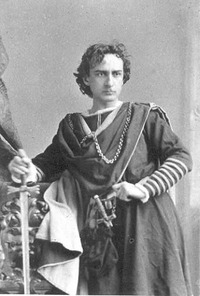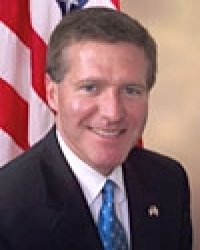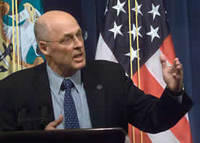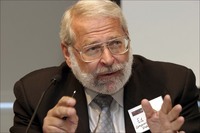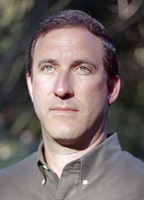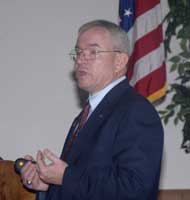 Well, it seems the telcos are a bit worried about those lawsuits:
Well, it seems the telcos are a bit worried about those lawsuits:
The Bush administration is refusing to disclose internal e-mails, letters and notes showing contacts with major telecommunications companies over how to persuade Congress to back a controversial surveillance bill, according to recently disclosed court documents.The existence of these documents surfaced only in recent days as a result of a Freedom of Information Act lawsuit filed by a privacy group called the Electronic Frontier Foundation. The foundation (alerted to the issue in part by a NEWSWEEK story last fall) is seeking information about communications among administration officials, Congress and a battery of politically well-connected lawyers and lobbyists hired by such big telecom carriers as AT&T and Verizon. Court papers recently filed by government lawyers in the case confirm for the first time that since last fall unnamed representatives of the telecoms phoned and e-mailed administration officials to talk about ways to block more than 40 civil suits accusing the companies of privacy violations because of their participation in a secret post-9/11 surveillance program ordered by the White House.
At the time, the White House was proposing a surveillance bill—strongly backed by the telecoms—that included a sweeping provision that would grant them retroactive immunity from any lawsuits accusing the companies of wrongdoing related to the surveillance program.
— Just Between Us, Telecoms and the Bush administration talked about how to keep their surveillance program under wraps. by Michael Isikoff and Mark Hosenball, TERROR WATCH, Newsweek, Apr 30, 2008 | Updated: 6:09 p.m. ET Apr 30, 2008
It’s sad to see professional military men like Lt. General Ronald L. Burgess, Jr., Office of the Director of National Intelligence, shilling for an administration that is so blatantly protecting itself and big corporations against justice for its own wrongdoing. White House stonewalling over first the existence of these documents, and now, since a judge ordered them to reveal that, release of the documents, isn’t about any “war on terror”. It’s about protecting lawbreakers and control of the people: Continue reading
